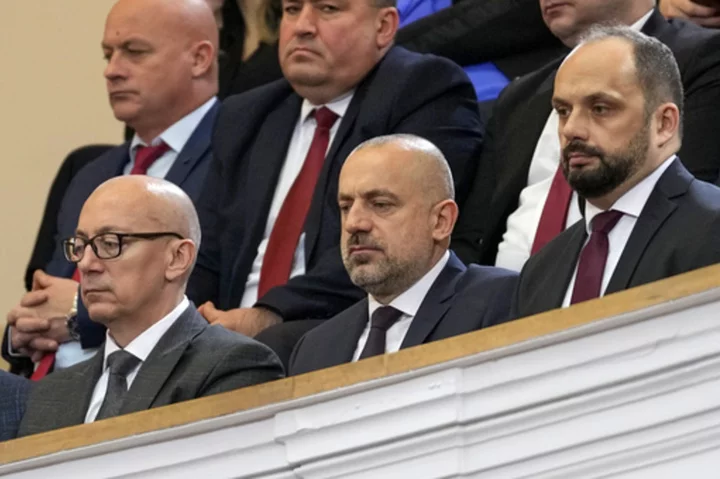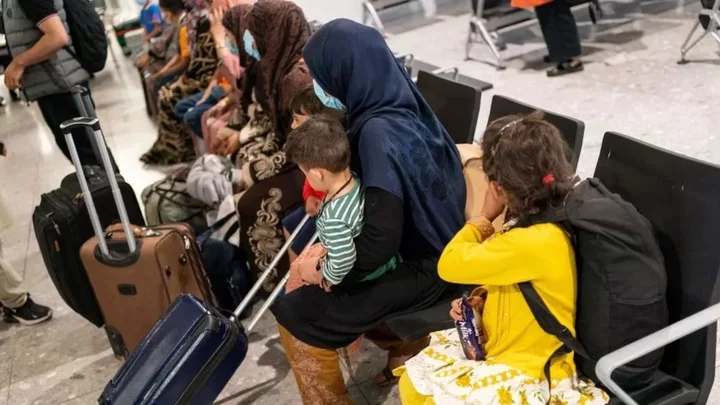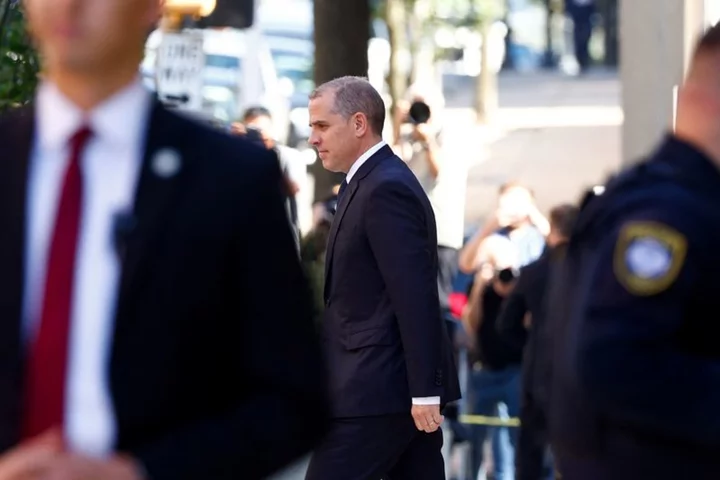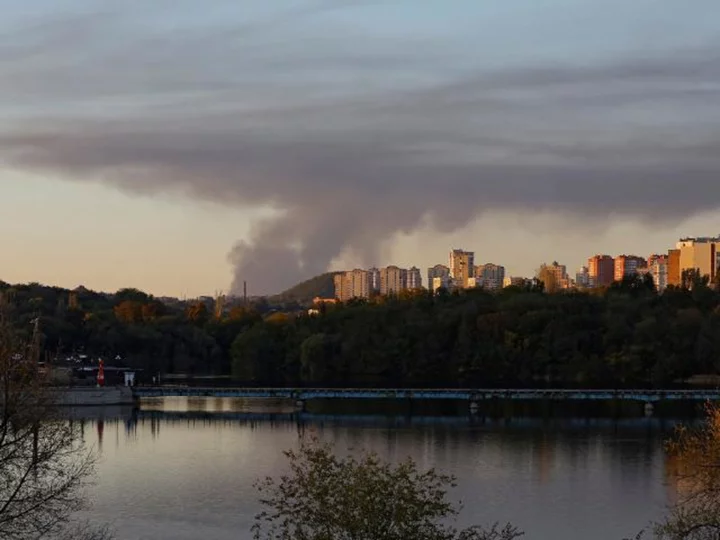BELGRADE, Serbia (AP) — Serbian police on Tuesday detained an ethnic Serb leader from Kosovo who was the alleged organizer behind a recent shootout with Kosovo police that left four people dead and sent tensions soaring in the region.
Police said they searched the apartment and other property in Serbia belonging to Milan Radoičić, a politician and wealthy businessman with close ties to Serbia's ruling populist party and President Aleksandar Vučić.
Police gave no other details. A statement said Radoičić was ordered to remain in custody for 48 hours.
The move comes amid an international outcry over the Sept. 24 violence in which around 30 heavily armed Serb men set up barricades in northern Kosovo before launching an hours-long gunbattle with Kosovo police.
Kosovo has accused Serbia of orchestrating the “act of aggression” against its former province whose 2008 declaration of independence Belgrade doesn't recognize. Serbia has denied this, saying that Radoičić and his group acted on their own.
Radoičić was a deputy leader of the of Serbian List party in Kosovo, which is closely linked with Vučić’s Serbian Progressive Party. He is know to own large properties both in Serbia in Kosovo, and has been linked by investigative media to shady businesses.
After the clash, Vučić has spoken favorably of Radoičić, portraying him as a true patriot who wants to defend Kosovo Serbs from alleged harassment by Kosovo Albanian authorities.
European Union and U.S. officials have demanded from Serbia that all the perpetrators of the attack, including Radoičić, be brought to justice. Radoičić, 45, has been under U.S. sanctions for his alleged financial criminal activity.
Serbia has said it has withdrawn nearly half of its army troops from the border with Kosovo, after the United Sates and the EU expressed concern over the reported buildup of men and equipment.
The flareup in tensions between Serbia and Kosovo has fueled fears in the West that the volatile region could spin back into instability that marked the war years in the 1990s, including the 1998-99 war in Kosovo.
That conflict ended with NATO bombing Serbia to stop its onslaught against separatist ethnic Albanians. Belgrade has never agreed to let go of the territory, although it hasn't had any control over it since 1999.
The latest violence in the village of Banjska was the most serious since the 2008 independence declaration. Serbia is an ally of Russia, fueling fears that Moscow was trying to stir up trouble in the Balkans to avert attention from the war in Ukraine.
Reflecting Western concerns over the situation, NATO has announced it would send more troops to its 4,500-strong peacekeeping force in Kosovo, known as KFOR. The mission was established in 1999, after Serbia was forced to pull out of the territory.
Washington and Brussels have sought to negotiate an agreement that would normalize relations between Serbia and Kosovo, but a tentative deal earlier this year has produced no progress.









